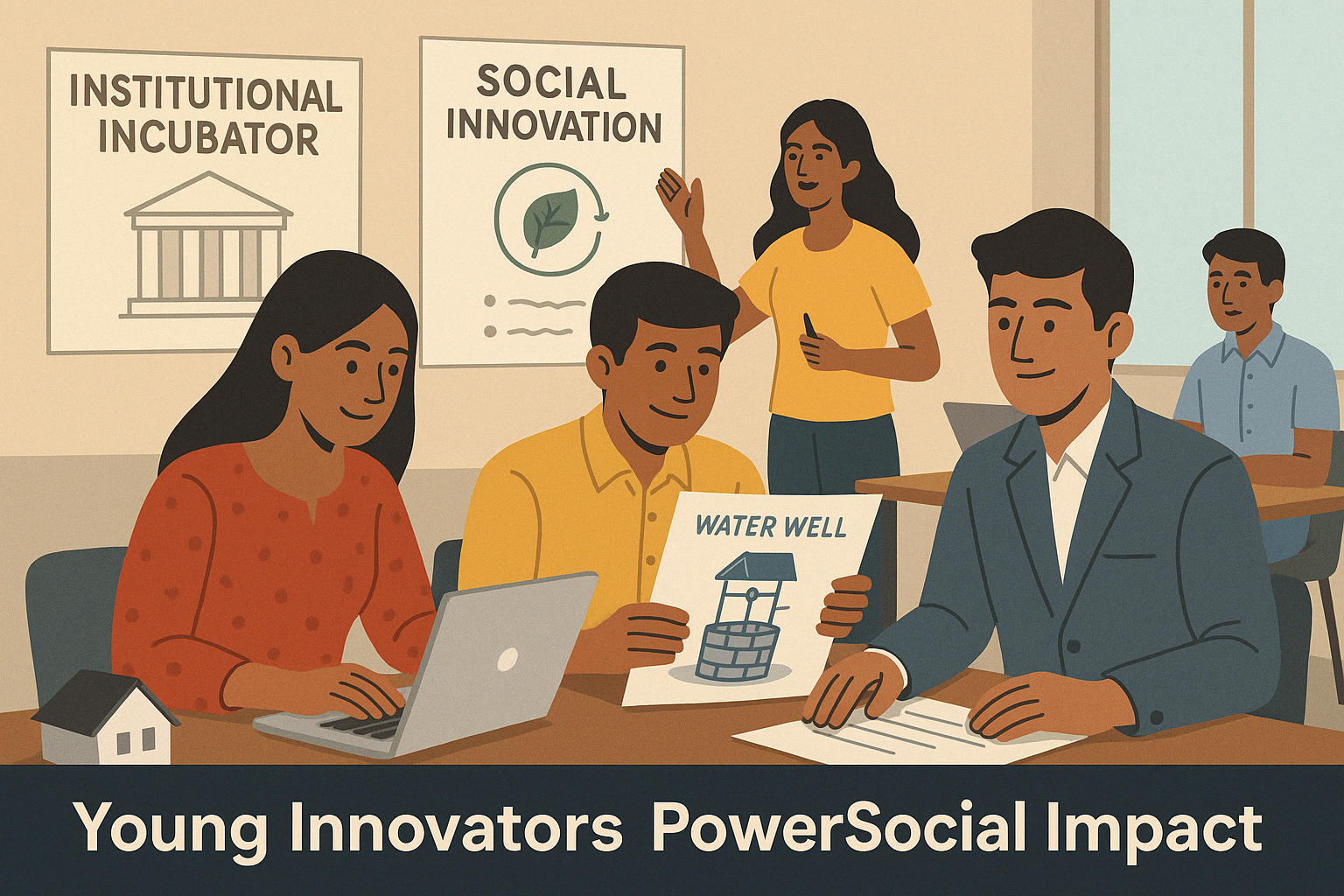Summary Points:
- Institutional incubators are university or research-linked centres supporting early-stage startups.
- They play a key role in building social impact ventures in health, education, sustainability, and rural tech.
- Government schemes, research facilities, and student talent make these incubators highly effective.
- Focused programs help convert academic ideas into scalable solutions for underserved communities.
- Collaboration with NGOs, ministries, and CSR partners amplifies outreach and real-world impact.
India faces complex problems—rural unemployment, sanitation gaps, education inequity, and access to affordable healthcare.Social impact startups aim to fix these. But they need structured support to survive.Institutional incubators—located inside universities, technical institutes, and research centers—are filling this gap.They’re not just enabling businesses. They’re enabling change.
What Makes Institutional Incubators Unique
Unlike private accelerators, institutional incubators are:
- Rooted in academic ecosystems
- Backed by central and state government funding
- Linked to technical faculty, students, and labs
- Located across urban and semi-urban India
- Focused on research, public good, and inclusive growth
These incubators often support non-traditional ventures—those not aiming for unicorn status, but for measurable social benefit.
ALSO READ: When Startup Centres and Government Join Hands, Founders Win
Key Areas Where They Drive Social Innovation
1. Healthcare and Diagnostics
Startups working on low-cost medical devices, telemedicine, rural diagnostics, and menstrual health solutions find strong support here.
Example:
SiCureMi (incubated at IIT Delhi) offers AI-powered preventive healthcare tools used in rural India.
2. Clean Energy and Sustainability
From solar-powered cold chains to waste-to-energy tech, many student-led innovations evolve into startups inside academic incubators.
Example:
Gegadyne Energy, backed by IIT Bombay’s incubator, develops fast-charging batteries for cleaner transportation.
3. Education and Skill Development
Incubators inside educational institutions naturally support edtech and skilling solutions.
Example:
iDreamCareer, supported by multiple university incubators, provides career guidance to rural and low-income students.
4. Agri-Tech and Rural Innovation
Agri-based incubators in agricultural universities or rural campuses offer access to field trials, Krishi Vigyan Kendras, and farmer networks.
Example:
AgNext, a Punjab-based startup from the ICAR-NAARM ecosystem, helps farmers with AI-powered quality assessment of crops.
5. Water, Sanitation, and Waste Management
Startups working on urban slum sanitation, greywater recycling, or smart toilets often begin with small pilots enabled by institutional incubators.
Example:
Ergonomadesign, supported by IIT Madras Incubation Cell, built modular public toilets for under-resourced areas.
Support Structures That Help These Startups Succeed
Access to Research and Labs
Startups can test prototypes, conduct experiments, and validate ideas using university infrastructure.
Grant Facilitation
Institutional incubators guide startups in applying for:
- BIRAC grants for biotech and health
- DST’s NIDHI-PRAYAS for product development
- Startup India Seed Fund for idea-stage capital
- Social Alpha and CSR-backed challenges
Technical and Domain Mentorship
Faculty members, PhD scholars, and visiting experts mentor on tech, scale, ethics, and social delivery.
The Power of Students and Social Purpose
Student innovators often have purpose-driven ideas but lack experience.
Institutional incubators help them:
- Structure their thoughts
- Build minimum viable products (MVPs)
- File patents
- Conduct community pilots
- Scale ethically and sustainably
They also offer entrepreneurship courses, innovation credits, and early exposure to problem-solving.
ALSO READ: India’s New Plans to Support Young Entrepreneurs
Real Examples of Impact
- Villgro, though now independent, began as an IIT Madras initiative focused on social enterprises.
- AIC-JKLU supports green and inclusive startups from the JK Lakshmipat University ecosystem.
- IIM Kashipur’s Foundation for Innovation and Entrepreneurship Development (FIED) helps agri-based and rural startups.
- Nirma University’s incubation cell runs a special track for frugal innovation in sanitation and rural tech.
Challenges Remain, but So Does Commitment
Even with success, institutional incubators face barriers:
- Limited funding beyond grants
- Bureaucratic delays in fund disbursal
- Lack of investor interest in social startups
- Overlap with academic administration
Yet, they continue because of one simple fact: they create real-world impact that private accelerators often overlook.



